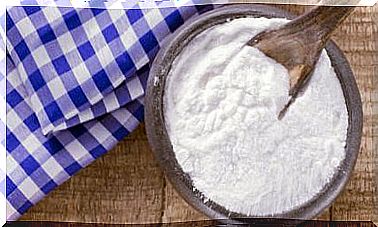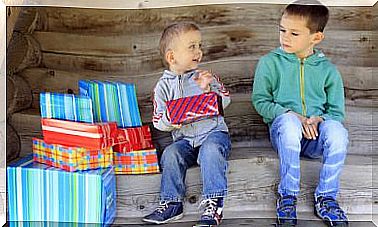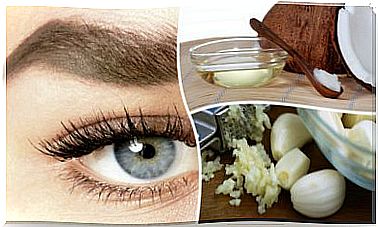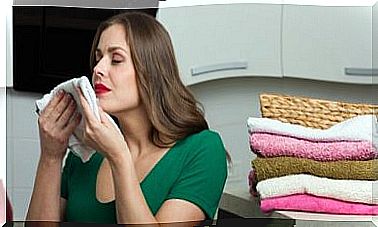Baby Skin Care
Babies’ skin is sensitive and delicate. Like everything in your body at birth, it still needs to reach full maturity. Baby skin care is very simple. They will only demand a gentle treatment and the privileged use of natural products.
Baby skin care not only ensures that it is clean and healthy, but also contributes to the baby’s psychomotor development. It is an indirect benefit, but as or more important than hygiene.
Walking the soft skin of the baby is a delight for parents, but also for babies. From birth to the first year of life, the baby’s touch is highly developed. Each contact with the mother’s skin helps to establish neural connections, thereby developing the baby’s brain.
Main skin care in babies

The skin of the baby that has been born is an effective barrier against external aggressions, but it has yet to mature to be like adult skin. The inner layers of the skin, the dermis and hypodermis, are thinner than adult skin.
The same occurs with the stratum corneum, responsible for the skin’s barrier function, which has yet to mature. Hence, it is a delicate skin that needs certain special care while it reaches the state of complete maturation.
However, the care that the baby needs are very easy to apply and follow. Both to take care that the skin is not altered by the abrasive elements of the environment and to protect its health.
At bath time
The baby comes from a watery environment, so diving back into the water is usually a very pleasant experience. Ideally, the temperature should not exceed 37 degrees, which is the temperature of the baby’s body. The use of soap can wait for the first few days to pass.
Your baby’s first bath should be at least 3 days after birth. This is so that the process of adapting the aqueous intrauterine environment to the dry extrauterine environment has been naturally completed.
However, you don’t have to rush to take that first bath. The vernix caseosa that the baby is born with and that protected it inside the uterus does not have to be removed from the baby until 24 to 48 hours after birth.
Afterwards, the bath routine will be one of the most pleasant moments in your baby’s day-to-day life. You will not only enjoy the contact with the water and the mobility it allows you. You will also enjoy the contact with the hands that bathe you. It is best to avoid the use of sponges, as they tend to accumulate fungi and bacteria.
The baby’s bath will be to remove remains of urine and feces, as well as remains of milk that can go to the folds of the neck when he is breastfed or takes his bottle. On the rest, the baby is very unlikely to get dirty.
After bath

Although it may not seem like it, bathing the baby only with water also alters the natural pH of the skin. Hence, it is important to be prudent with the number of baths given per week. When soap use is introduced, it should have a neutral pH.
Once out of the water, you must dry well with a soft cotton towel. The use of fabrics with synthetic materials should be avoided. The skin in babies has folds where moisture from the water can be trapped, which can be a source of irritation or even infection. After the bath it is good to cut the nails.
Cosmetic products should not be used on the skin of babies. They usually have chemicals that can sensitize the skin and increase the chances of developing allergies. As much as these products are marketed as “exclusively for babies”, it is best to avoid them.
The baby’s sweat glands are not yet performing their temperature regulating function, so it is highly unlikely that the baby will sweat or have a bad odor. There are still years to perceive a bad smell related to sweat.
Baby clothes

Ideally, the baby should wear clothes made of natural fabrics and light colors. The skin in babies can react to synthetic fabrics or artificial colors. To do this, it is a very good idea to look at the label of the clothing before buying it.
Before wearing any new or gifted clothing, it must be washed. Again, you have to use natural soaps or soaps specially designed for baby’s clothes, as they tend to leave less chemical residue on the fabrics. Softeners are not necessary. The labels must be removed to avoid rubbing on the skin in babies.
The baby’s clothes should be washed separately from the clothes of the adults in the family during the first 6 months of life. After that time it can be washed together with the rest of the family’s clothes. You just have to be careful not to use abrasive detergents or fabric softeners.
About cosmetic products
A newborn baby does not need either colognes or powders. That delicious smell that the baby gives off comes from remains of amniotic fluid and vernix caseosa. Who has not been ecstatic smelling the soft smell of a baby’s skin? There is no chemical that can overcome it.
The use of lotions, ointments or moisturizers is more for cultural reasons than medical. There are no conclusive studies on this. However, it is a fact that soap and water in the bath can dry out the skin in babies and it is better to use them to avoid diaper rash, which causes very annoying irritations for the baby.
The solution can be 10% glycerin. This maintains the level of hydration or the amount of water in the stratum corneum of the skin for longer. The same benefit can be found in natural oils such as coconut oil or almond oil.
The use of wet towels or wipes to remove food residues on the face, neck or genital area is contraindicated. They usually carry chemicals that make the skin more sensitive to possible allergens. They can be used only when the baby needs to be cleaned outside the home or there is no other option but to use them.
The sun, the wind and the cold
Atmospheric factors such as sun, wind, and cold can be beneficial or detrimental to a baby’s sensitive skin. Everything will depend on the exposure time that babies have to these elements of nature.
Sunlight is necessary to fix vitamin D and its benefits. Many newborn babies are directed to take 10 minutes of sunlight a day. However, they must be protected from excessive ultraviolet radiation with fresh clothing and not exposed to the hottest hours. The use of sunscreen is recommended from the baby’s 6 months of life.
Walks in the fresh air are beneficial for the baby. You just have to protect them from the wind and cold during the winter. Protection is physical. A baby needs only one more layer of clothing than adults use. However, be careful not to overcoat your baby.
Final reflection
Avoid exaggerations to take care of your baby’s skin. Keeping them clean cannot become a source of worry. Babies have sensitive skin that we must take care of and protect to ensure their well-being.









